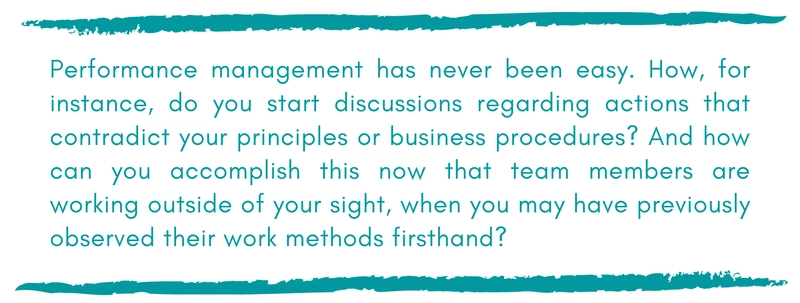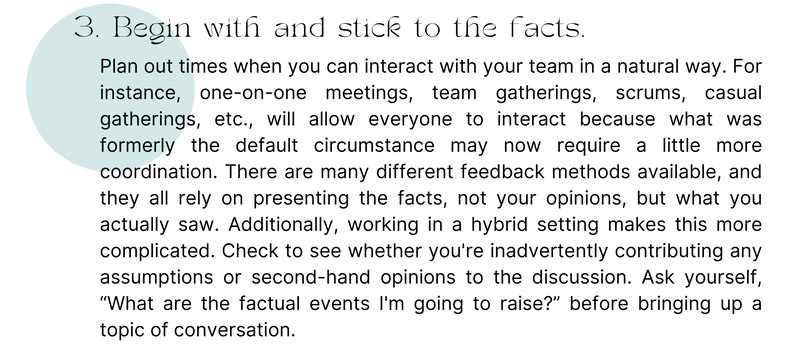6. Remotely managing the performance
We think the fundamentals of how we create deep engagement are more crucial than ever in a hybrid context where we no longer work (some of us, at least) in the same area.
We employ the strength of Rosenberg's non-violent communication in difficult situations because it enables people to identify needs that aren't being met and to ask the other person to meet those needs without making assumptions.
We also think that having communication with your team member right away is the cornerstone of every engagement, whether pleasant or difficult. Here, you express your goals for the group and your own vision for it and invite each team member to do the same. What are they trying to accomplish, and how are you able to help?
The idea is to merge your objectives into a partnership that is codependent and advantageous to both parties. “How can you assist me in realizing my vision? How may I assist you in achieving your goals?” When a team member's activities no longer serve your goals or theirs, the answers to these questions serve as the foundation for managing performance.
In order to support managing performance remotely, try these three methods:
7. Navigating Change
This is important right now because organizations don't have set goals and easy ways to get there. Instead, they are exploring and learning. Change is all around you, and you're starting to get used to it. So, what are some key ways to address the fact that things change all the time, and the reality is nothing but constant change?











Top comments (2)
A new, employee-focused degree of work planning and space management may be achieved with hybrid work solutions.
Ty this was useful